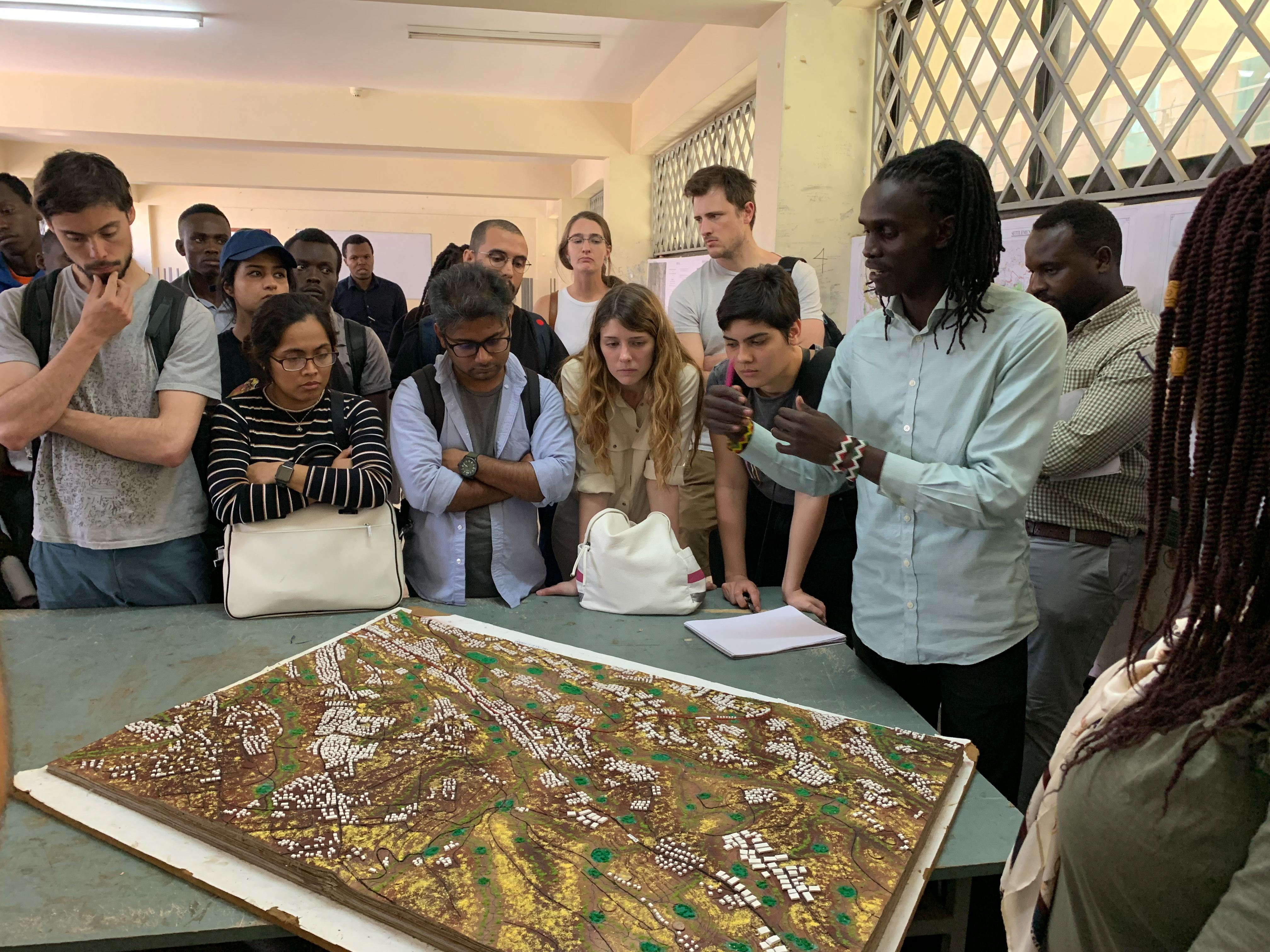Our website uses cookies to improve your experience. To make optimal use of this website please agree to our cookie policy.
Organised by KU Leuven
Master of Human Settlements
Starting
07/11/2023
Period
Sept 2024 - sept 2025
Deadline
01/02/2024

Starting
07/11/2023
Period
Sept 2024 - sept 2025
Deadline
01/02/2024
Do you want to understand the challenges and opportunities of worldwide settlements in relation to current rapid urban changes? The Master of Human Settlements (MaHS), situated within the International Center of Urbanism (ICoU), is just what you are looking for.
Stemming from the recognition that space is an increasingly limited resource and, thus, needs to be utilized effectively, the MaHS provides insights into human settlement design in an era of rising social inequalities, global warming, and rapid change. This one-year intensive program tackles the multi-faceted challenges and opportunities of contemporary urbanisation patterns, from multi-disciplinary and multi-scalar perspectives. Architecture, urbanism, landscape architecture and spatial planning are the core disciplines underpinning the program. Contributions from fields such as economics, geography and anthropology complement the core disciplines in order to better understand the interplay between human and natural ecosystems.
Furthermore, the MaHS thrives from its truly international body of students and alumni, as well as the faculty’s long-standing research expertise in contexts worldwide. Its development as an ICP Connect programme is supported by a trans-local network of partners and alumni that has continued to grow for over three decades. Partners from around the world, primarily those in Kenya, South Africa, Mozambique, Palestine, Vietnam, and Ecuador act as regional hubs (composed of interconnected, multi-stakeholder alliances), that collaborate with the MaHS to promote inclusive territorial transformations by means of a design-driven and context-based approach to spatial change (intertwining social and ecological dimensions). It does this with the aim of delocalizing and decolonizing its learning and teaching components and environments. Through design studios where fundamental and applied knowledge within a research-based approach is used, real-world problems are tackled, and students develop critical and interpretative approaches towards developing their own position within the field.

Candidates that meet the following criteria* may apply for an ICP Connect scholarship:
*Please note that additional criteria may be imposed by individual institutions. These can be found under the drop-down menu 'more detailed information & application' on this page.
Within the ICP Connect framework, scholars are seen as potential agents of change that may contribute to societal change in their home country (or region) after completing their studies. Scholars are selected following an objective evaluation of their scholarship applications based on the following criteria:
Motivation: Candidates' motivation and professional goals must reflect their competence in transferring knowledge/skills or setting up extension activities and highlighting themes relevant to sustainable development and pertinent to the study programme. Not only are academic results important, but so are - especially - the potential and commitment of the candidates to become an 'agent of change' after completing their studies.
Professional experience: Preference will be given to candidates who can demonstrate a greater chance of implementing and/or transferring newly gained knowledge/skills upon completion in a sustainable development context, such as in the higher education sector, government, civil society or the private sector, thereby contributing to positive societal change.
Gender balance: A balance between male and female candidates awarded ICP Connect scholarships is targeted. VLIR-UOS strongly encourages female candidates to apply. Read more about our gender policy here.
Regional balance: A reasonable cross-section of scholars from different countries and regions is targeted, provided there are sufficient qualified candidates.
Leave No One Behind (LNOB): In case of equally qualified candidates, preference will be given to candidates from vulnerable groups.
Previously awarded scholarship: Preference will be given to candidates who have never received a scholarship to study in a higher income country (bachelor or master).